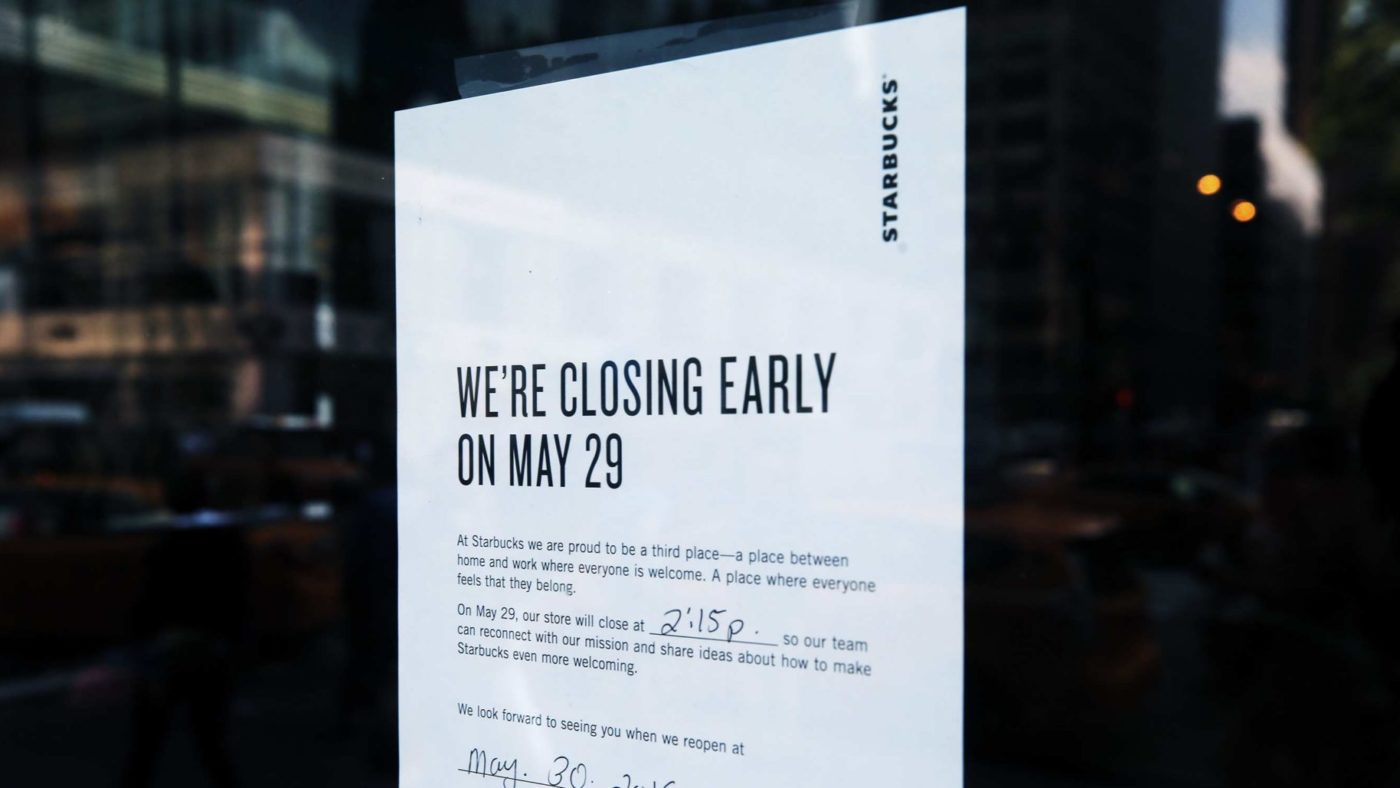Back in 2018 a manager at a branch of Starbucks in Philadelphia called the police on a black customer who asked to use the bathroom.
The result was, understandably, a public relations disaster. In response to a growing chorus of calls to do something to solve its race problem, Starbucks shut down its 8,000 US stores to institute a day’s mandatory unconscious bias training. Other US institutions, including Delta Airlines and the New York Police Department, have implemented similar programmes.
Now, the UK Parliament wants MPs to follow the lead of these US institutions. Should they?
I think not, for at least three reasons.
First, it is far from clear whether ethnic disparities are caused by unconscious bias. An example of why comes from a systematic review of 492 laboratory studies that I co-led with my colleague, Calvin Lai. This set of studies is part of the body of research suggesting that unconscious bias causes discriminatory behaviour and, therefore, ethnic disparities.
Yet the ‘behaviours’ examined in this group of studies are things like how close a participant chooses to sit to a backpack owned by a black person – contrived examples that can be observed in the laboratory but have hardly any relevance to ethnic disparities in real life. Even if we allow that avoiding sitting too close to a backpack may have some relevance, my colleagues and I found no evidence in these 492 studies that levels of unconscious bias created knock-on changes in these somewhat trivial behaviours.
Second, unconscious bias training programmes have no standard curriculum. There is no board to certify that a training provider adheres to a specific standard. Whether a programme qualifies as “unconscious bias training” is down to the word of the trainer. In reality, ‘unconscious bias training” is more of a branding device than a meaningful scientific term.
Third, unconscious bias training has not been evaluated systematically in policy-relevant settings. When it is deployed in these settings, often it is not evaluated at all. For example, after Starbucks instituted its mandatory training, the company refused to evaluate the training’s effectiveness despite its enormous cost. It is similarly unclear whether the company-wide training implemented by Delta airlines has ever been evaluated. The actions of these companies, and other companies like them, suggest organisations that implement unconscious bias trainings are more focused on good PR than solving real problems of racial and ethnic bias among their employees.
None of which is to say that ethnic disparities in the UK do not create real social problems. One study found that ethnic candidates had to send 80% more applications to employers to get the same number of call-backs. Writ large, this difference in employer call-backs puts ethnic minority job-seekers at a big disadvantage in the labour market.
If unconscious bias training is not the right way to solve problems like this, what should policymakers do instead?
As my colleagues and I describe, the process of crafting evidence-based behavioural science interventions is laborious and extensive. It needs to be – just as new medicines must be evaluated to determine whether they improve symptoms and come with few side effects, so too should behavioural science interventions be subjected to proper scrutiny.
The first step is to clearly define the problem you wish to address. The interventions that address ethnic disparities in employment callbacks will be different to the interventions that address ethnic disparities in access to medical care. In policy, as in life, there are no one-size-fits-all solutions.
Once we have clearly identified and defined the problem, policymakers should focus their attention on addressing structural rather than interpersonal causes of ethnic disparities. Unconscious bias training focuses on changing individuals. Yet, by virtue of their formal positions, policymakers are best placed to change laws and regulations, not individual hearts and minds.
We can take a cue from the movement to reduce police misconduct in the United States. In most US jurisdictions, firing police with a history of misconduct is extremely difficult due to collective bargaining agreements struck with police unions. One simple way to reduce police misconduct is thus to implement reforms that weaken the power of these unions so that officers who habitually break the rules can be replaced with officers who don’t. This insight comes not from the science of unconscious bias, but from an analysis of the specific policy environment that surrounds US policing.
Ethnic disparities are a serious social problem, and serious problems deserve serious solutions. As it stands, structurally orientated solutions should be taken more seriously than fashionable unconscious bias training.
Click here to subscribe to our daily briefing – the best pieces from CapX and across the web.
CapX depends on the generosity of its readers. If you value what we do, please consider making a donation.


